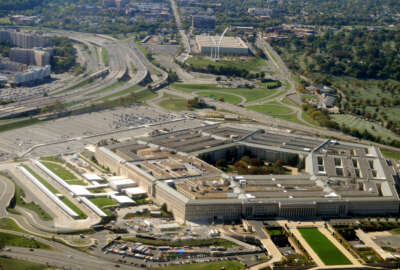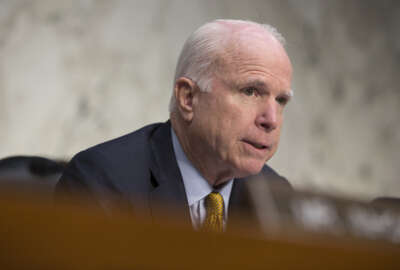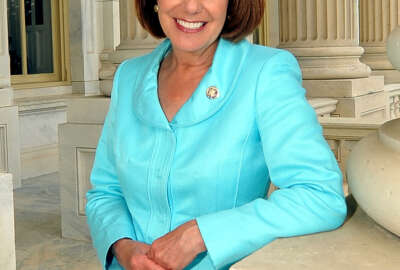
Top Republican won’t budge on increased military pay raise
House Armed Services Military Personnel Subcommittee Chairman Joe Heck wants a higher pay raise for military employees.
A prominent Republican in Congress is insisting military troops receive a full 2.1 percent increase in pay for 2017, despite both the Senate and President Obama setting lower pay hikes.
House Armed Services Military Personnel Subcommittee Chairman Joe Heck’s (R-Nev.) contention that the military needs a bigger pay increase could throw a wrench in Congress’ plans to reconcile their differences over the 2017 defense authorization bill in the coming weeks.
“Our men and women in uniform deserve a full pay raise,” Heck said. “The global security environment is not getting any safer and deployments aren’t getting any easier, yet our military families are constantly asked to do more with less. This is unacceptable. I remain committed to ensuring our troops and their families receive the full pay raise they have earned.”
The House version of the NDAA provides for a 2.1 percent pay increase for military employees as Heck is requesting, but the bill also uses some budgetary sleight of hand to pay for the salary bump.
The Senate version of the bill only gives military employees a 1.6 percent increase, as does the President’s determination for 2017 salary increases.
That sets up another sticking point in an NDAA that seems increasingly doomed and likely to break the bill’s 50-year passing streak.
Heck’s office said there has been no new information from the Senate side on whether they would consider inching closer to the 2.1 percent figure.
The Senate Armed Services Committee had no comment on the issue.
The biggest hang up for increasing military personnel salary is not based in the principle of the idea, but rather where the funds would come from.
The authors of the Senate NDAA budgeted defense spending to the edges of the caps allowed by the 2015 budget deal.
Adding any more funds would trigger sequestration.
Senate Armed Services Committee Chairman John McCain (R-Ariz.) offered an amendment to the Senate NDAA in June that would add $18 billion in supplemental funds that are not subject to the budget caps. Within that $18 billion was an increase in pay for the military to 2.1 percent.
“If you vote no [on the amendment], don’t go home and say you support the military, because you do not,” McCain said during an impassioned speech on the Senate floor before his amendment failed.
The House version of the bill pays for the salary increase and other extra expenses by taking $18 billion from an emergency war fund and putting it in the base budget for 2017.
That would cause the war fund to run out of money by April of next year, forcing Congress to pass another budget supplemental to pay for operations overseas.
The Obama administration has called that tactic reckless and says it creates a fiscal cliff for funding troops in war zones.
Republicans say Congress did the exact same thing in 2008 to give President Obama discretion over wartime funds once he took office.
Still, even if Heck gets his way, it still seems unlikely an NDAA with a pay increase would be signed by the President.
Andrew Hunter, an analyst for the Center for Strategic and International Studies, said last week the NDAA has a veto virtually “baked in.”
“Both defense authorization bills were written, in my view, with the expectation there was going to be a veto in this process along the way,” Hunter said during an Aug. 30 Heritage Foundation event in Washington. “Last year, when we had a veto it was very much in doubt throughout the year. … Ultimately, obviously, he did and I would say at least it appears there was no political price paid for that veto.”
Hunter said if the President didn’t experience any repercussions for the veto last year, the odds of him doing it again are pretty good.
So even if both congressional houses can come to a compromise, it remains to be seen if they can play ball with the executive branch as well.
Copyright © 2024 Federal News Network. All rights reserved. This website is not intended for users located within the European Economic Area.
Scott Maucione is a defense reporter for Federal News Network and reports on human capital, workforce and the Defense Department at-large.
Follow @smaucioneWFED





